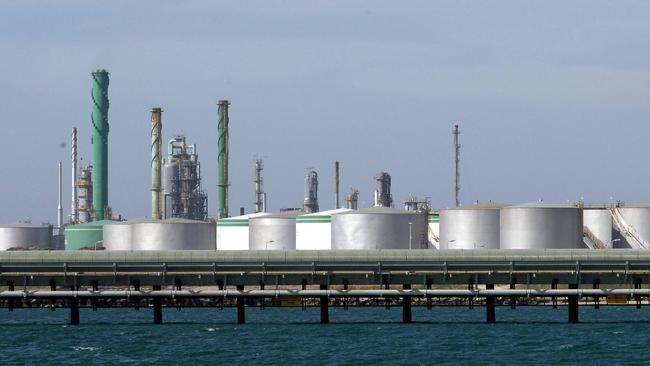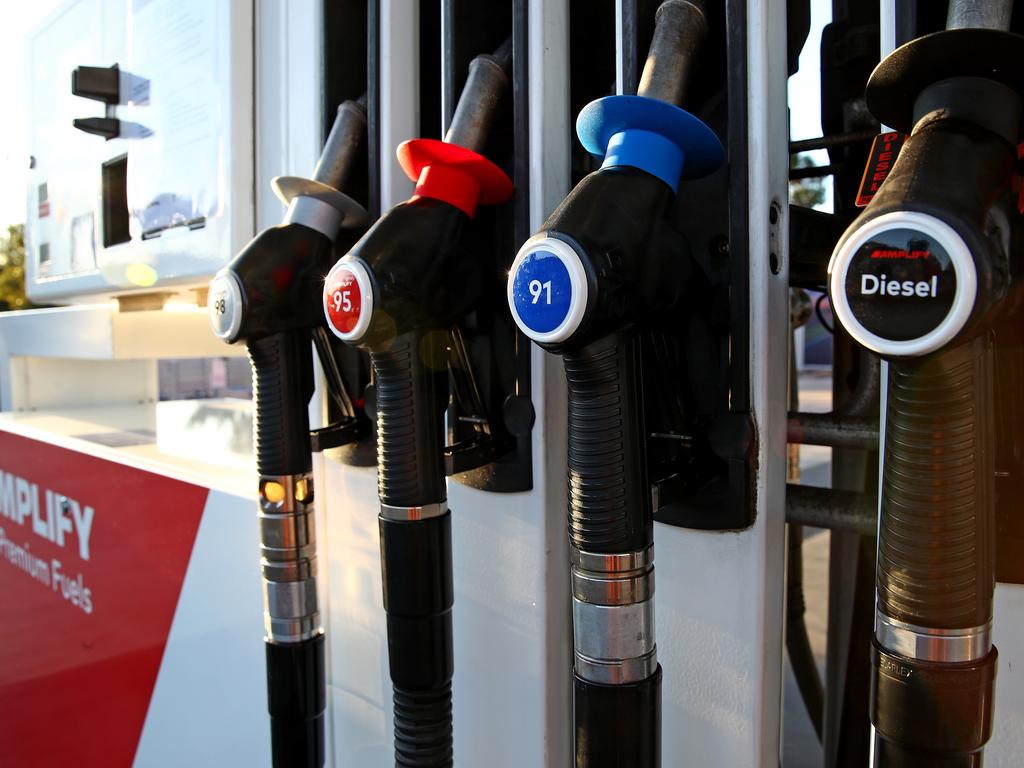BP to close WA’s Kwinana fuel refinery
BP’s move to end production at Kwinana and turn it into an import terminal is a new blow to the government’s energy security policy.

BP has dealt a new blow to the federal government’s energy security policy by announcing it will halt fuel production at its Kwinana refinery in Western Australia, saying it is no longer economically viable.
The refinery, regarded as the best in Australia, will be converted into an import terminal.
BP’s move comes amid growing pressure on refinery operators in Australia, and follows threats by Viva and Ampol to shut their Geelong and Brisbane refineries. ExxonMobil also said in September its Altona refinery was trading at a loss.
Energy Minister Angus Taylor has attempted to keep the refineries operating by imposing an import duty.
The refinery currently employs around 650 people – 400 permanent staff and 250 contractors.
Refining activities will wind down over the next six months, with a conversion workforce supporting site works. The new terminal will support construction work out to 2022.
Once complete, the import terminal is expected to support around 60 jobs, BP said.
In a statement BP said “it will cease fuel production at its Kwinana refinery and convert it to an import terminal, helping to ensure ongoing security of fuel supply for Western Australia”.
The refinery, near Fremantle, has provided fuel for Western Australia for 65 years.
“However, the continued growth of large-scale, export-oriented refineries throughout Asia and the Middle East has structurally changed the Australian market,” BP said.
“Regional oversupply and sustained low refining margins mean the Kwinana refinery is no longer economically viable.
“Having explored multiple possibilities for the refinery’s future, BP has concluded that conversion to an import terminal is the best option.”
BP Australia head of country Frédéric Baudry said: “BP’s Kwinana refinery has played an important role in the development of Western Australia.
“It helped underpin the early development of the surrounding community and key industries.
“Generations of Western Australians have worked at the facility, building a fantastic legacy of safe and reliable operations that we will always be proud of.
“Today’s decision to cease refining is a difficult one and not in any way a result of local policy settings.
“It comes in response to the long-term structural changes to the regional fuels market.”
Mr Baudry said converting to an import terminal “will not impact the safe and reliable supply of quality fuel products to Western Australia”.
However it would require fewer people to run.
“We deeply regret the job losses that will result and will do everything we can to support our people through the transition.”
As well as the import terminal, BP said it was also exploring future options for the site including a potential clean energy hub “to harness the existing and emerging technologies required for the decarbonisation of the Western Australian economy”.
In a statement, Mr Taylor said the Australian government is deeply disappointed by BP’s decision to close its Kwinana Refinery, but insisted it would not impact Australian fuel supplies.
“The Covid-19 pandemic continues to place immense pressure on refineries world-wide, with demand for fuel products significantly reduced”.
“As BP has made clear, its decision to close the refinery was based on commercial and international factors, including the age of the refinery and overseas competition.
“Closure of the refinery will not negatively impact Australian fuel supplies.
“The Australian government expects BP to deliver on its commitment to do everything it can to support workers through this challenging period,” Mr Taylor added.
The Kwinana Refinery directly employs around 650 staff and is an important contributor to the local economy.






To join the conversation, please log in. Don't have an account? Register
Join the conversation, you are commenting as Logout